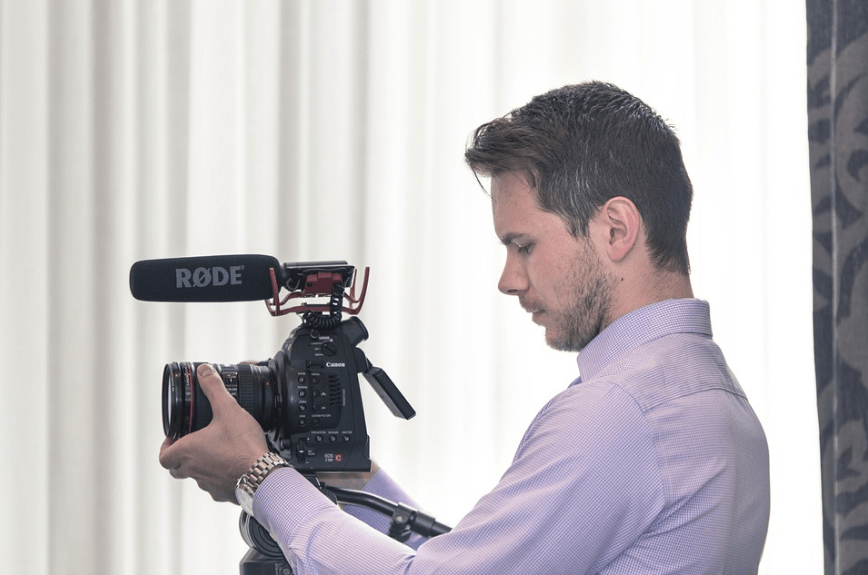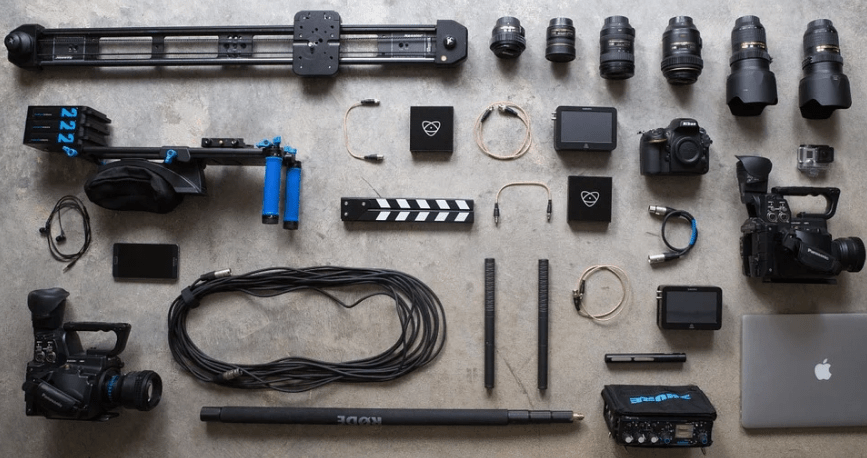There was a moment in history when the only means of working in videography was working with big production corporations with access to all the fancy gear required to make high-quality videos. Fortunately, as technology has developed, videography has grown increasingly accessible. You can now even use your phone to produce professional videos you can showcase on your website, and you don’t any particular degree or extensive schooling either.
However, you don’t have to figure out videography for yourself. Whether you’re contemplating what to study in school or already a professional photographer, this guide to beginner videography will inform you of the essentials for starting a career in videography.
How to Become a Videographer?
There’s no lone pathway to becoming a videographer. The amount of training and education you’ll require will depend on the video type you intend to shoot. For example, if you aspire to work on news production, you’ll need to know how to operate a still camera, while for action films, you’ll be required experience with track-mounted cameras. One option for becoming successful as a videographer is by going to school for it; however, you can also begin on your own and cultivate a freelance practice as time passes.
What Skills Should You Have to Become a Videographer?
Being a videographer requires several technical skills, whether you’re working solo or with a team. For instance, along with operating your equipment and setting up a shot, you also need to familiarize yourself with assembling, cleaning, and maintaining the equipment, together with the pre and post-production, including on-screen text, special effects, and closed captioning. In addition, if you’re not a one-man act, you’ll probably require skills such as the ability to collaborate on concepts with a creative team or director.
Equipment Needed in Videography
Before investing your hard-earned money on gears that you might not end up needing, contemplate the type of video that you plan on making. For instance, real estate drone videos will demand a different gear set than if you’re filming a personal vlog.
Here are some essential video gears you’ll need to start with, no matter what videography style you end up doing.
Camera
There are plenty of different camera options depending on how much you’re willing to spend. Here are some cameras that are commonly used in the video industry.
Smartphone
If you’re new to videography or photography, it’s a great idea to start with the camera you already own— your smartphone. This is an excellent way of learning about editing your video and framing your shots without the need to invest a large amount of cash. Lots of video editing software even offer free phone applications so you can make everything on the go.
Action Cameras
Action or sports cameras, such as the GoPro, are typically small with built-in image stabilization and a wide-angle lens. They’re ideal for filming fast-action, but they lack other features like high-quality audio recording and a viewfinder.
DSLR
Many photographers have a DSLR as their favorite camera. Other than for photography, this camera is also perfect for shooting videos. One advantage is the ability to change lenses easily to change the effect of your films entirely. There are also mirrorless cameras with advanced autofocus that allows the users to be more hands-off when shooting.
Point and Shoot
In the past, when smartphones have yet to exist, everyone had a small digital camera for photo taking on night outs or vacations. These point-and-shoot cameras are an excellent option for filming high-quality videos, and they also tend to be light and small for easy transportation.
Camera Accessories
There’s no need to waste all your money on camera gear as a beginner, particularly when you have limited field experience. You can instead start with these basics:
Extra Batteries and Memory Cards
Be sure that you always bring at least one extra empty memory card and a fully charged backup battery.
Tripod
A tripod aids in keeping your camera steady, helping you capture professional-quality content regardless of your level of experience.
Microphone
If you plan on utilizing audio that you got in the field rather than studio voiceovers, you’ll want a higher quality microphone than what’s included in your camera.
Lighting Kit
Even when the conditions are excellent, you must always have a handy basic lighting kit.
Editing Software
Producing great video content is so much more than your fieldwork. Editing is also a considerable part of the process, and you’ll need video editing software that’s easy to learn and intuitive. Some of the popular video editing programs include:
- Adobe Premiere Elements
- iMovie
- Lightworks
If you’re not inclined to spend a lot of your money on your latest hobby, you don’t need to worry! As long as you own a basic camera, you can begin learning and practicing, and after, investing as you continue to progress.

